Robert Kirkman, creator of The Walking Dead, addressed the logistics of one early plot “discrepancy” from the early issues of the series, but in the process pointed out an even more uncomfortable plot hole, one that tests the limits of the series’ committment to versimilitude, even more than the existence of zombies.
The Walking Dead Deluxe #9 – written by Robert Kirkman, with art by Charlie Adlard – is part of the full-color rerelease of the legendary zombie series, which not only reproduces the original black-and-white art in full color, it also reprints the original letters section from the issue.
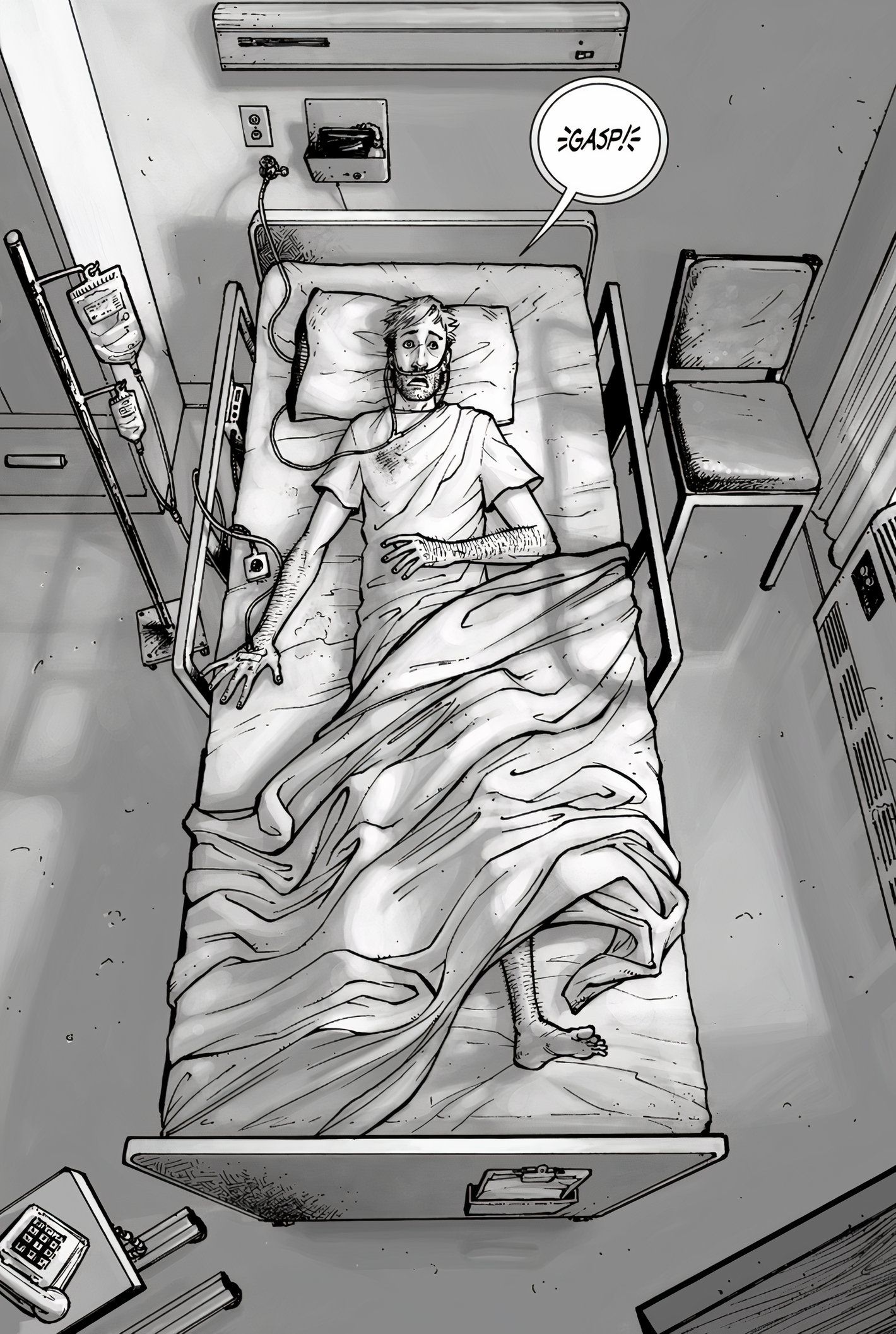
In his response to fan mail, Kirkman clarified readers’ questions about the timeline of the series’ inciting events – while also bringing up an unfortunate, even gross, truth about Rick Grimes’ initial call to action as a hero.
Robert Kirkman Points Out An Uncomfortable Truth About The Start Of Rick Grimes’ Heroic Journey
The Walking Dead Deluxe #92 – Written By Robert Kirkman; Art By Charlie Adlard; Color By Dave McCaig; Lettering By Rus Wooten
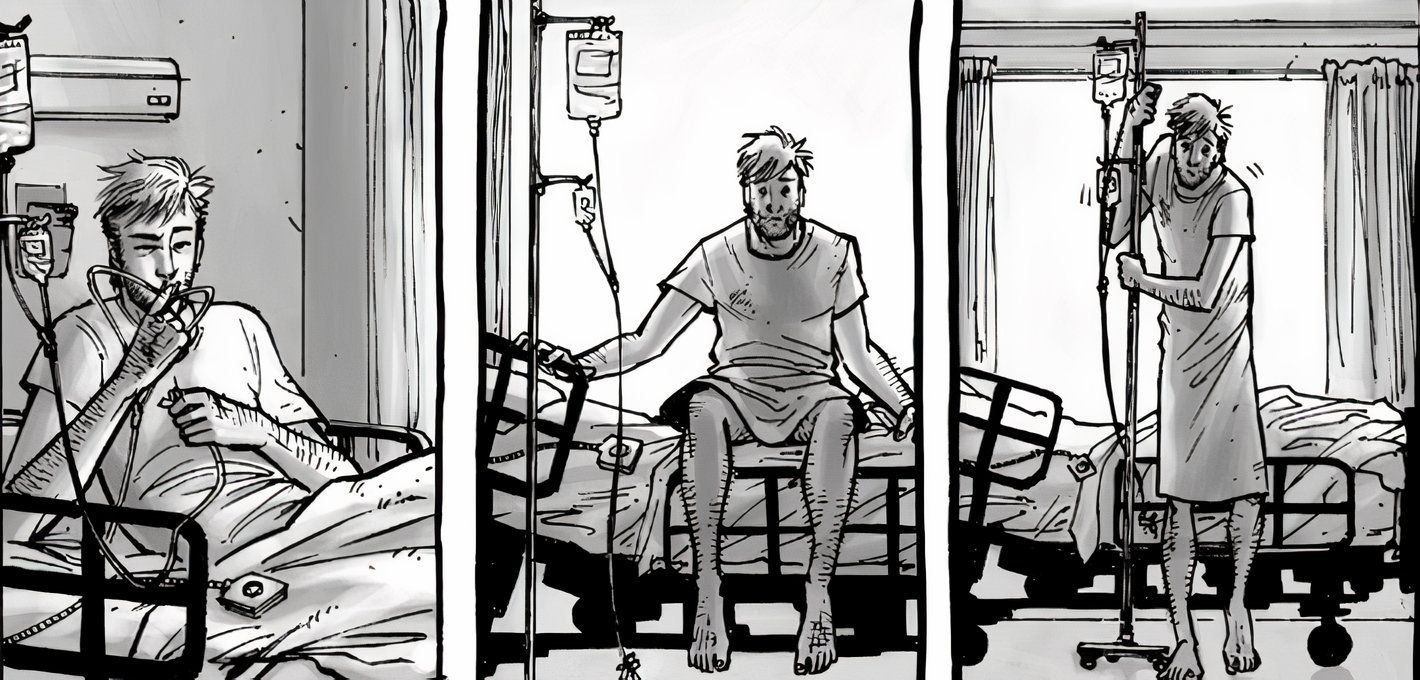
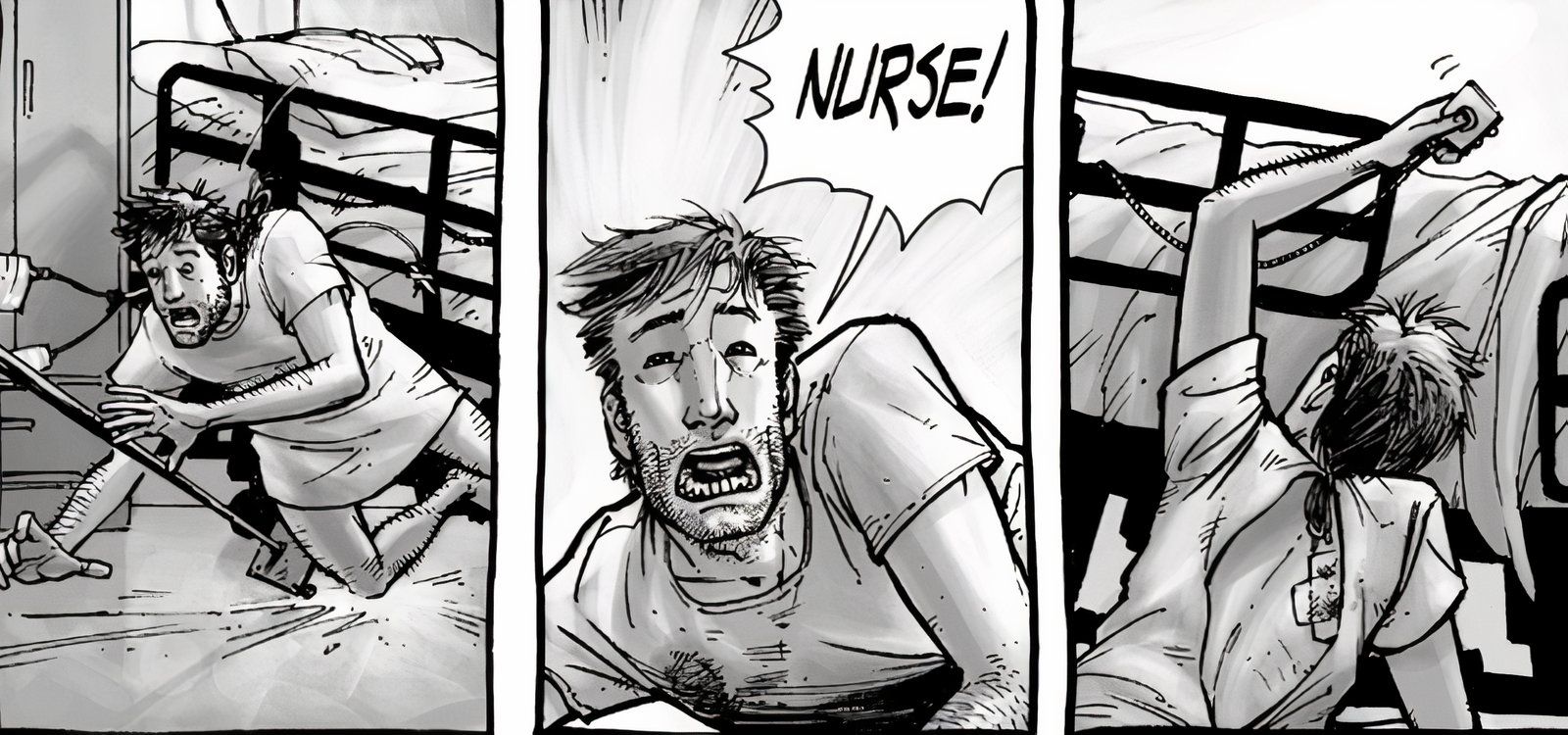
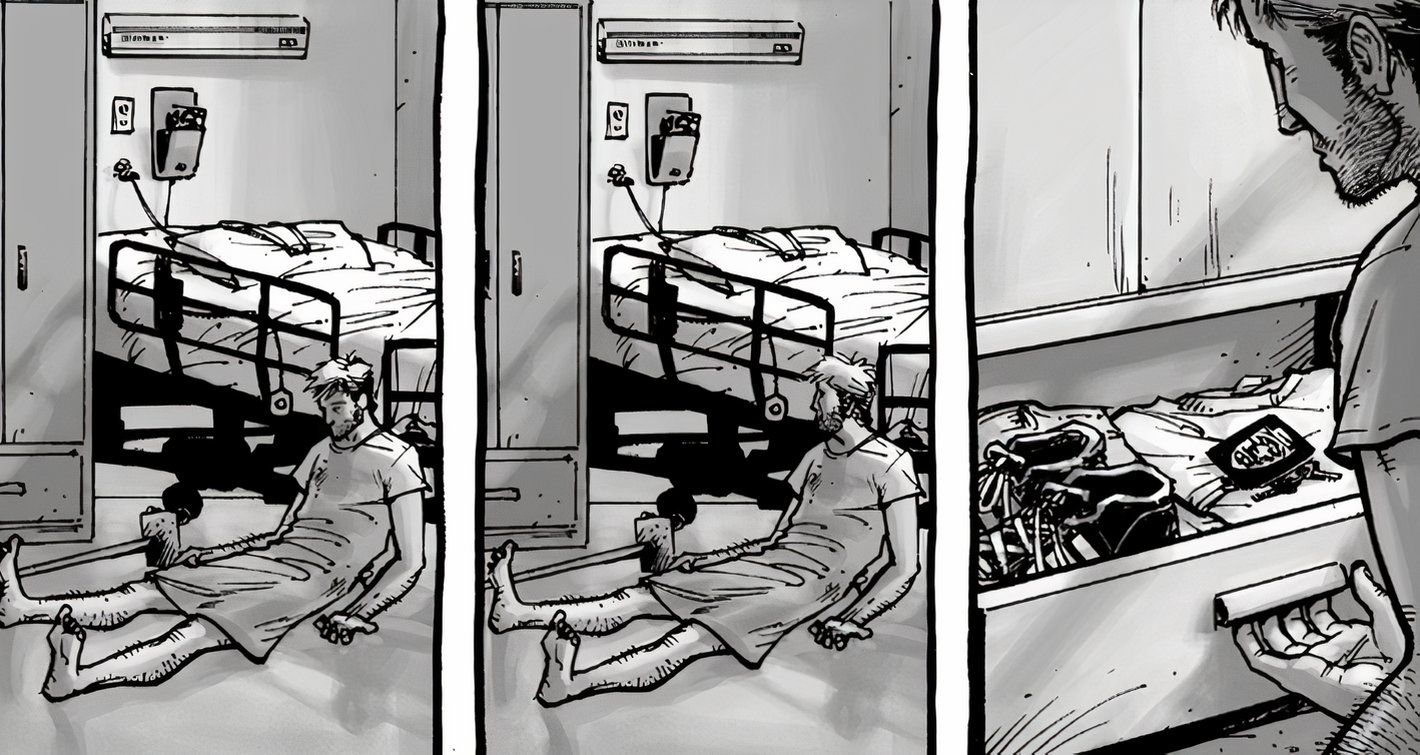
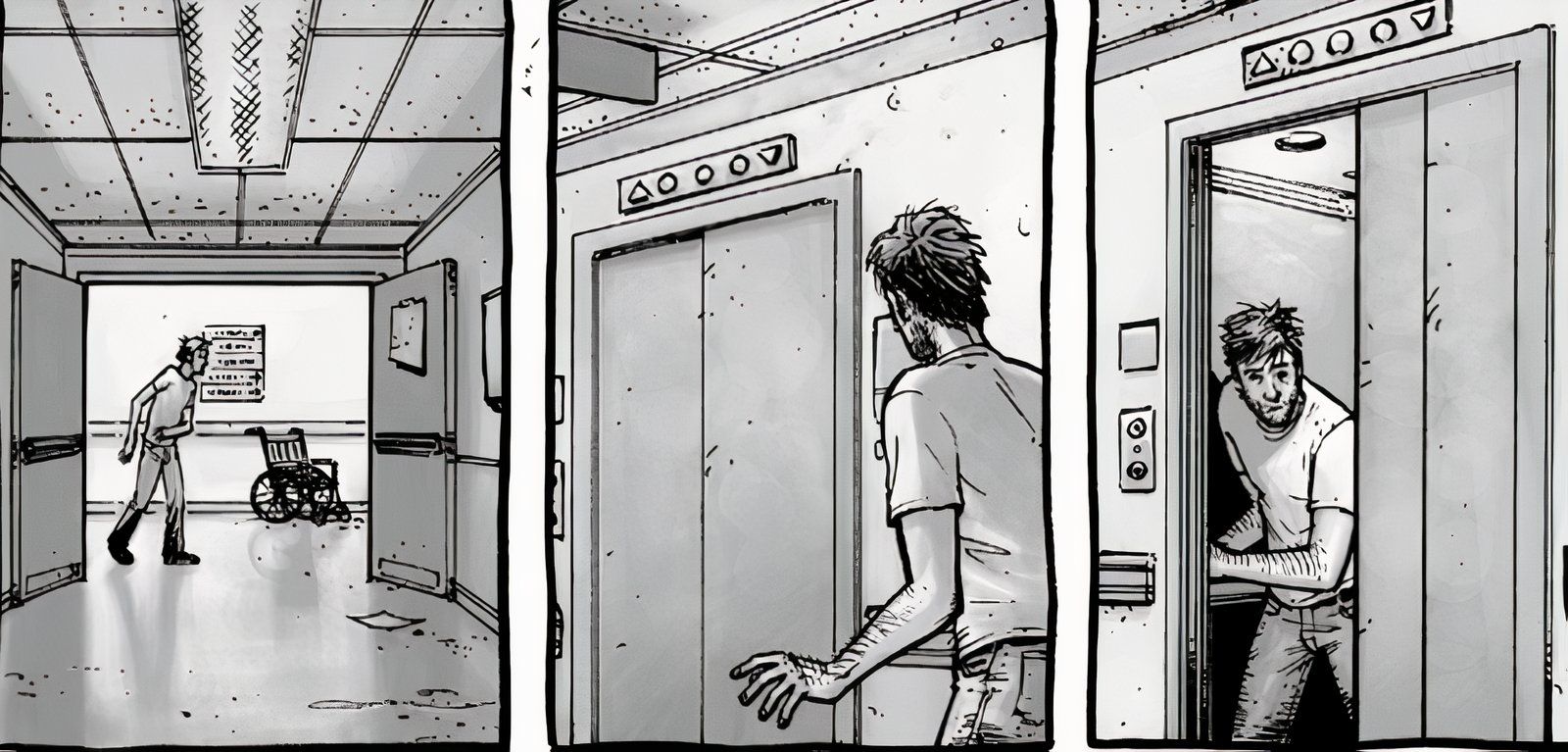
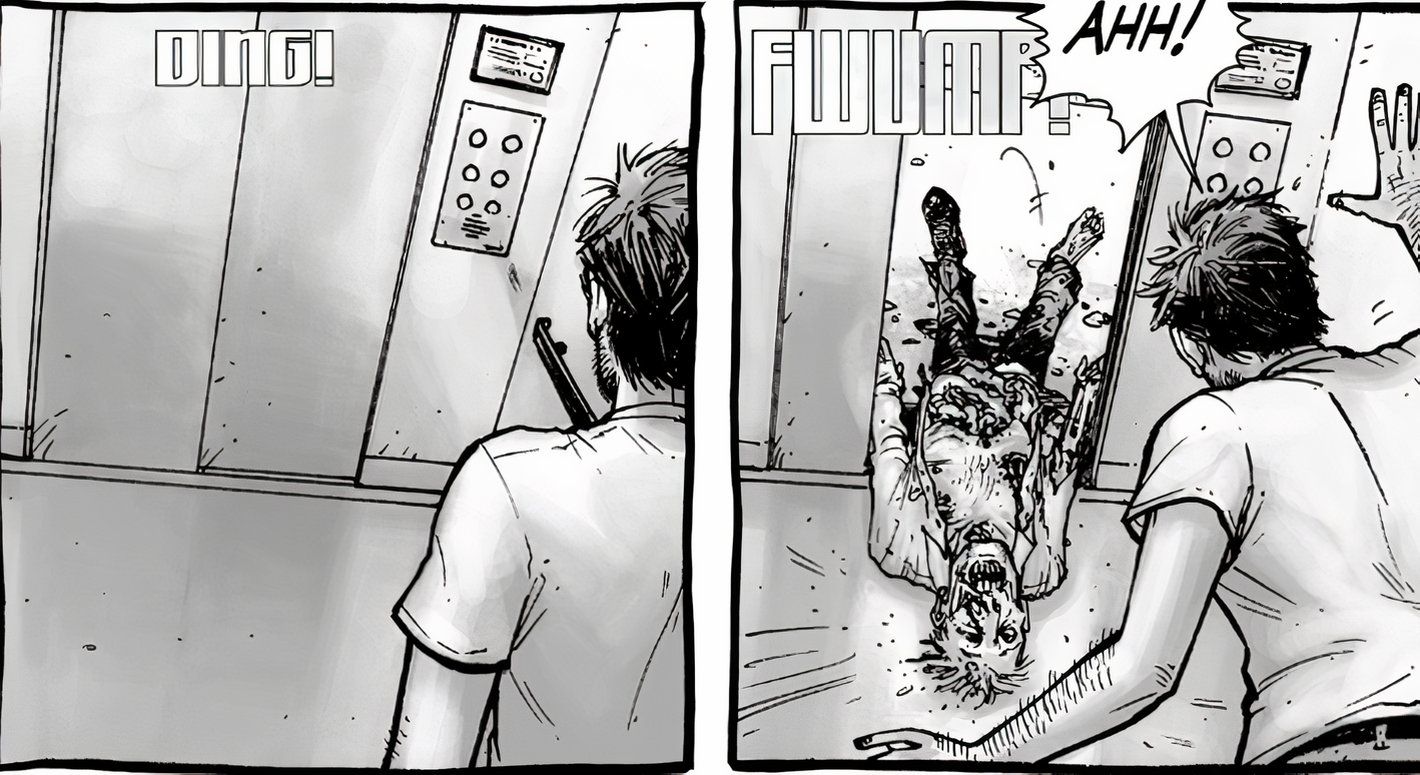
While it might seem as though Kirkman is simply being crass with his answer, he is in fact acknowledging the limits of “realism” in The Walking Dead .
In the original letters section of The Walking Dead #9, Robert Kirkman responded to fans’ uncertainties about the realism of Rick Grimes’ journey from his hometown, to the zombie-overrun metropolitan center of Atlanta. As Robert Kirkman explained, the journey would not have been as arduous or protracted for Rick as some might have thought. Kirkman elaborated:
A lot of people seem to think he went a pretty far distance between issues #1 and #2. The first issue took place in the town where I grew up, Cynthiana, Kentucky, and it’s only a six-hour drive to Atlanta from there. It was warm outside, and there was NO traffic…aside from smashed cars and whatnot he had to avoid. He ran out of gas really close to Atlanta…and he was on that horse for a WHILE. See…it all makes sense.
While this put to rest any lingering doubts about Rick’s travel in the first issues of The Walking Dead, Kirkman seemingly couldn’t stop himself from raising an even more notable inconsistency.
As the author amended to his answer:
Just don’t bring up the fact that he [Rick] was in a coma for a number of weeks and didn’t s**t himself.
While it might seem as though Kirkman is simply being crass with his answer, he is in fact acknowledging the limits of “realism” in The Walking Dead. Aside from its zombie outbreak premise, The Walking Dead presented a grounded portrayal of how humans would react to a civilization-ending crisis. Still, that fidelity to the “real” could only be extended so far – and Rick’s hygiene upon waking up from his coma was one subtle way in which the series acceded to narrative necessity instead.
The Walking Dead’s “Realism” Necessarily Had Its Limits
Often Gory, But Rarely Gross
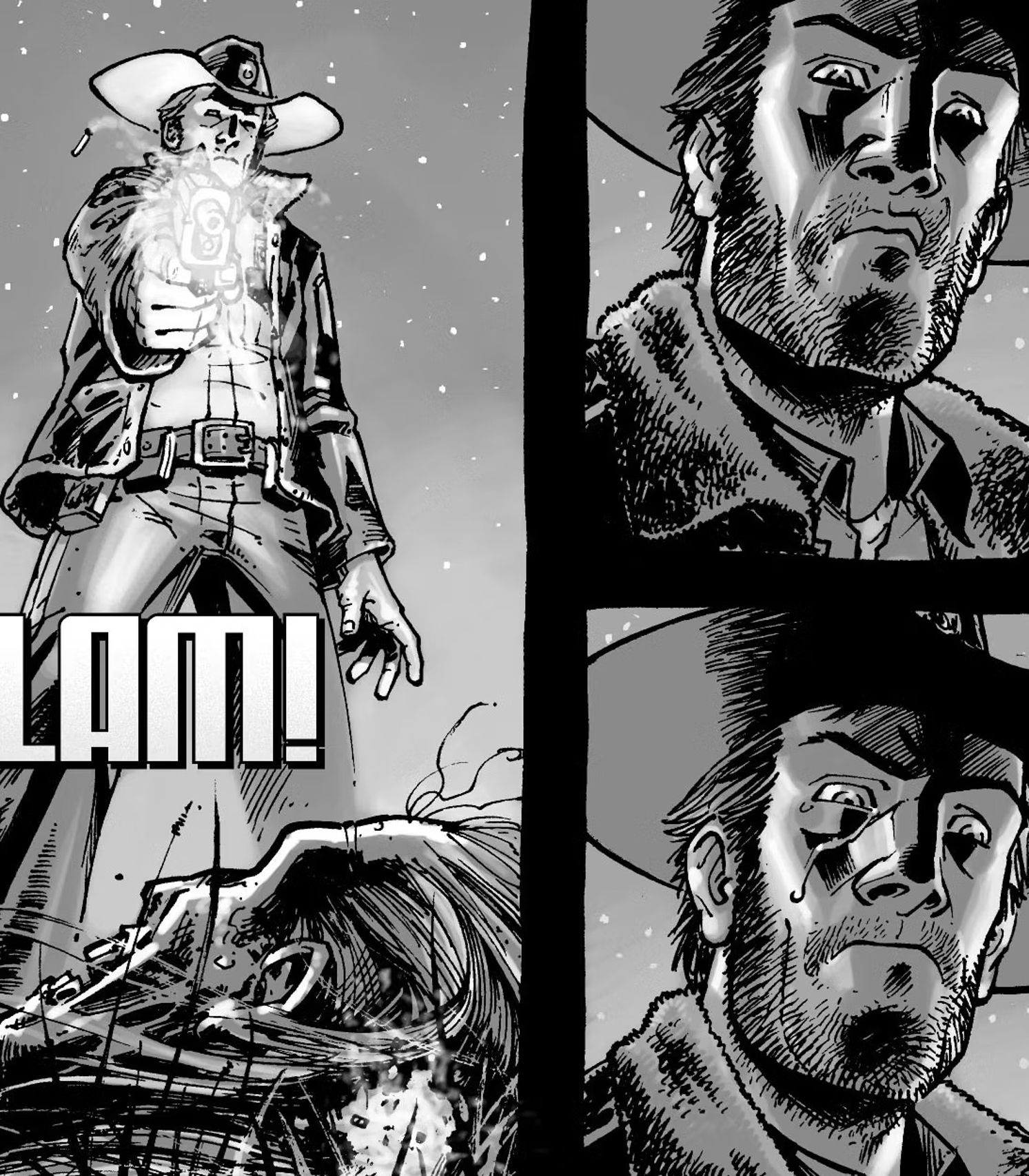
As Robert Kirkman acknowledged, there might be a gross “plot hole” when it comes to Rick’s coma, but it was ultimately insignificant in the context of the larger goals of The Walking Dead.
Realistically, after waking up unattended from a coma, Rick Grimes certainly would have found that he had soiled himself – but as a writer, Robert Kirkman had to make the decision not to emphasize that detail. In this way, even unintentionally, Kirkman established that there were boundaries to the level of realism he was willing to engage with. In other words, some realistic details needed to be sacrificed, or at least overlooked, in order to get to the more urgent realism of characters’ actions and emotions.
This “big picture” realism, so to speak, was always Robert Kirkman’s priority. That is perhaps why Kirkman made the point in conjunction with his explanation of Rick’s early travels – as if to signal to fans that focusing on the minor details instead of the overarching story, and the issue-by-issue emotional impact of The Walking Dead, was a misappropriation of their focus. As Robert Kirkman acknowledged, there might be a gross “plot hole” when it comes to Rick’s coma, but it was ultimately insignificant in the context of the larger goals of The Walking Dead.





